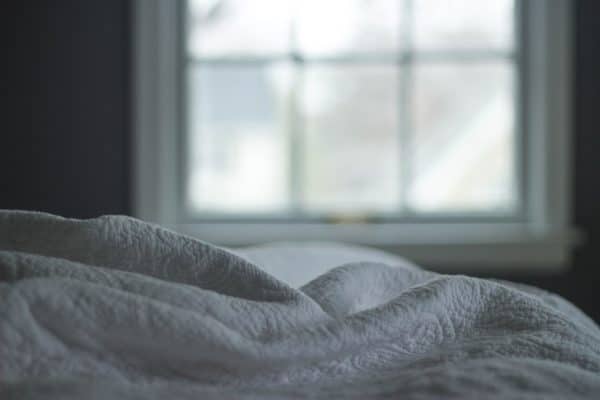
Even though Jacksonville typically experiences fairly mild winters, there are still plenty of times every year when it is necessary to heat your home. The type of heating system you have and the size of your home are two of the biggest factors in determining how efficiently your home is heated and how high your energy costs are. Another important factor that many people don’t consider is the number, size and location of all of the windows in the home, and here is everything you need to know about how windows affect your home’s heating.
How Windows Impact What Size of Heating Unit You Need
When installing a new heating system, it is vital that the unit is the correct size for your home. If the unit is undersized, it can often end up running almost constantly without providing adequate heat. This leads to poor indoor comfort and also much higher energy costs. If the unit runs constantly, it is also likely to break down more quickly due to increased wear and tear.
Oversized heating units are also problematic. A unit that is too large will typically only run for a few minutes at a time before shutting down. This is known as short cycling, and it can lead to a number of different issues. When a furnace or heat pump short cycles, it puts a huge amount of strain on the unit and will lead to it having a much shorter lifespan. It will also cause a need for more frequent repairs. Oversized heating units also lead to uneven heating or cold spots in some parts of the house. If the heater only runs for a few minutes before shutting off, it often won’t produce enough heat in that time to fully warm those rooms further away from the heating system.
Two important considerations when sizing a furnace, heat pump or other heating unit are the size of the home and the local climate. Most of Florida is in U.S. Climate Zone 2. In this zone, you need approximately 35 to 40 BTUs (British Thermal Units) of heating per square foot. This means that a 2,000-square-foot home would usually need a 70,000- to 80,000-BTU furnace or heat pump.
However, if your home has a large number of windows and skylights, you will generally need a slightly larger heating unit than you would in a home without many windows. The issue here is that the more windows you have, the more places there are for heat to escape. Windows are normally the biggest source of heat loss, and this always needs to be accounted for when determining what size of heating unit is needed.
Window Location and Heat Gain
The location of your windows is also an important consideration. Although windows can be a major source of heat loss, they can also create lots of heat gain due to the sunlight streaming through them. South-facing windows receive the greatest amount of light. This means they also generate the most heat. West-facing windows also contribute to heat gain since these receive lots of sunlight during the afternoon when the weather is typically much warmer. Having lots of large south- and west-facing windows can be a great help during the winter as all of the heat increases will help to keep your home warmer and lighten the load on your heating system.
This is why you should always leave your curtains or window coverings open during the day. However, you will want to close your curtains at night. Doing so will create a barrier that helps to prevent as much heat from escaping out of the windows overnight.
North- and east-facing windows don’t get nearly as much sunlight. If most of your windows are on the north and east sides of your home, you will likely need a larger heating unit than you would if most of your windows were facing south or west.
Why Your Window Type Matters
The type of windows you have is also an important factor in terms of heat loss. Many older homes still have lots of single-pane windows, and this will have a huge negative impact on heat loss. Double- and triple-pane windows are excellent at keeping out the cold. In between the panes is a layer of air that creates an insulating barrier that helps to keep the cold air from penetrating through the glass and seeping inside.
Single-pane windows have very little insulation. Whenever the outdoor temperature is lower, the glass will quickly become cold and start to reduce the temperature in the nearby areas. This will force your heating system to work harder and lead to higher energy costs. According to the EPA, upgrading your old windows with new Energy Star-rated windows will reduce your energy costs by around 12% on average.
The Importance of Window Sealing
It isn’t just the type and size of the windows in your home that matters, but also how well they are sealed on both the inside and outside. Air leaks from poorly sealed windows are another major source of heat loss and energy waste.
Sunlight and weather exposure cause the caulking around the outside of windows to degrade over time, and this will start to allow more and more air to seep inside. The caulking around the inside of windows will also degrade over time, albeit much more slowly than outside since it isn’t directly exposed to the elements.
Checking to see if your windows are drafty is a simple task that can be done any time the weather is cold. All you need to do is feel around the sides of all of your windows to see if there is cold air leaking in. If you do feel any cold air, this is a sure sign that your windows are leaking and need to be resealed. When resealing windows, you should consider having a professional come and do the job. They will be sure to cut away all of the old caulk or silicon sealant first to ensure a tight seal.
The general rule of thumb is that you should always have your windows inspected and resealed every five to 10 years. If not, they will quickly start to develop more air leaks and force your heating system to work harder. The investment of this service pays for itself over time in the energy savings accumulated by having properly sealed windows.
If you’re having any issues with your heating system, you can count on the experts at McGowan's Heating & Air Conditioning to help. Our heating maintenance services can help ensure that your system is ready to go and works effectively and efficiently all winter long. We also specialize in heating and cooling repairs and installation. We also install, maintain and repair furnaces, heat pumps, air conditioners, mini-splits and a range of indoor air-quality equipment. McGowan's Heating & Air Conditioning also specializes in HVAC design and installation for remodels and new construction projects as well as attic sealing and duct cleaning. We have locations in Jacksonville and Bunnell and serve residential and commercial customers throughout Northeast and Central Florida. To schedule a heating tune-up or any other heating or cooling service, contact McGowan's Heating & Air Conditioning today.



